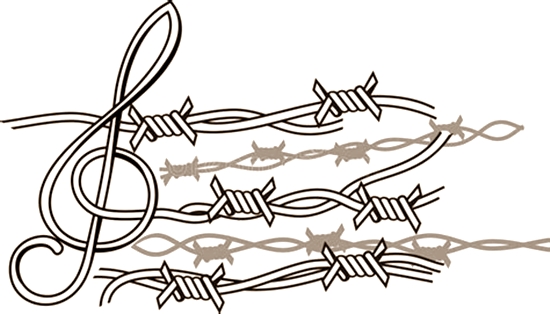
It was inevitable in the prison that Hong Kong has become over the last several years. Hongkongers are now definitely prohibited from broadcasting or distributing a song that inspired many of them when hundreds of thousands were flooding the streets to resist the oppressive policies of the Chinese Communist Party.
After China imposed the 2020 National Security Law, which has prevented all but isolated gestures of protest in Hong Kong, the city’s authorities were determined to never again have to hear a note of the protest anthem “Glory to Hong Kong.” Even humming of the song, if allowed to go unchecked, could presumably bring down the Chinese Communist Party and usher in a new golden age of unfettered freedom—that’s how potent and dangerous this expression of the human spirit is.
The anthem has words like “Arise! Ye who would not be slaves again” and “For Hong Kong, may Freedom reign” and “Though deep is the dread that lies ahead, Yet still with our faith on we tread” and “Glory be to thee Hong Kong.”
Associated Press reports (“Protest song ‘Glory to Hong Kong’ banned in city after court overturns ruling,” May 8, 2024):
An appeals court on Wednesday granted the Hong Kong government’s request to ban a popular protest song, overturning an earlier ruling and deepening concerns over the erosion of freedoms in the once-freewheeling global financial hub.
“Glory to Hong Kong” was often sung by demonstrators during the huge anti-government protests in 2019. The song was later mistakenly played as the Chinese territory’s anthem at international sporting events, instead of China’s “March of the Volunteers,” in mix-ups that upset Hong Kong officials….
Judge Jeremy Poon wrote that the composer intended for the song to be a “weapon” and so it had become, pointing to its power in arousing emotions among some residents of the city.
“We accept the assessment of the executive that prosecutions alone are clearly not adequate to tackle the acute criminal problems and that there is a compelling need for an injunction,” he said….
The ban would target anyone who broadcast or distributed the song to advocate for the separation of Hong Kong from China. It would also prohibit any actions using the song to misrepresent it as the national anthem with the intent to insult the anthem. But it would exempt lawful journalistic and academic activities.
Despite the nominal terms of the ban, no persons who sing or distribute the protest anthem will be able to successfully defend themselves on the grounds that they did not do so in order to advocate separation or in order to insult the official CCP-endorsed anthem.
Previous decision also bad
The July 2023 ruling that is now being overturned was a disaster waiting to happen.
The judge who drafted that earlier ruling for Hong Kong’s Court of First Instance, Anthony Chan, wrote that the court “recognized the engagement of the right to freedom of expression in the consideration of this application” and noted the “chilling effects” that would ensue if the government’s request to ban the song were granted.
Which sounds fine. But Radio Free Asia picked up on an ominous muddledness in Chan’s words.
“I am unable to see a solid basis for believing that the invocation of the civil jurisdiction can assist in the enforcement of the law in question,” Chan said in the ruling, adding that there is already plenty of criminal law that could be used instead.
Plenty of criminal law that could be used instead to censor “Glory to Hong Kong”?
In its July story, RFA also quoted a government spokesman, who said: “The Court of First Instance made the decision to refuse granting an interim injunction not because the acts in question are legal, but because the court considered that such acts already constitute criminal offenses even without the injunction, and therefore was not satisfied that the injunction would be of real utility.”
So despite the High Court’s stated concern about “freedom of expression” and “chilling effects,” the Court was saying back then only that the CCP was using the wrong patch of law to censor the anthem or punish utterance of it, not that the anthem should be uncensored and unpunished, period.
After this exercise in futility and evasion, and given everything else that has been going on in Hong Kong since 2020, it was only a matter of time—less than a year, as it turns out—before the axe would finish falling. The pretense of concern about freedom of speech manifested by the contradictory decision of July 2023 has been displaced by the more open attack on freedom of speech evinced by the present decision.
But hey, don’t worry if you live in Hong Kong and you have the anthem on your iPhone. “Police would not break into your home and arrest you because you have the song on your computer,” says Ronny Tong Ka-wah, a member of Chief Executive John Lee’s Executive Council. “It really depends on what you do with the song.”





